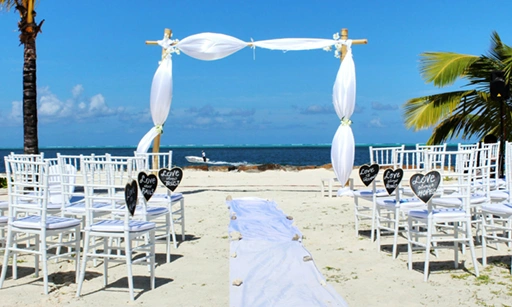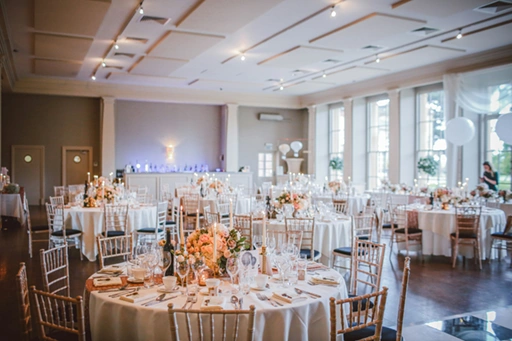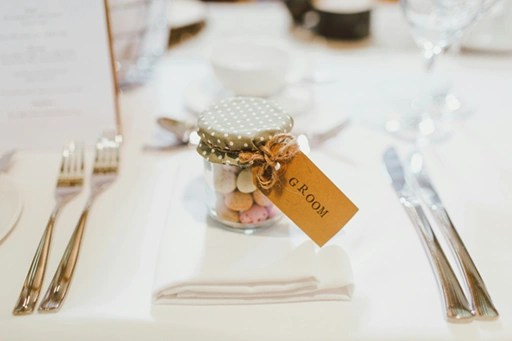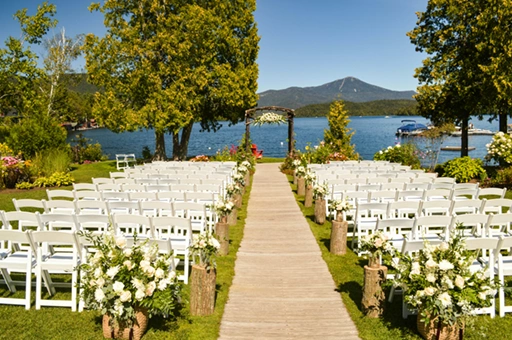When it comes to planning your wedding, one of the first—and most important—decisions you’ll make is choosing your wedding venue. The venue sets the tone for your entire celebration and serves as the backdrop to one of the most significant days of your life. With so many options out there, from rustic barns to elegant ballrooms, it can be overwhelming to know where to start. But don’t worry—we’ve got you covered. Here’s a comprehensive guide to help you choose the perfect wedding venue that reflects your style, accommodates your guest list, and aligns with your budget.
1. Define Your Vision and Style

Before you even start looking at venues, take some time to think about the kind of atmosphere you want for your wedding. Do you envision a glamorous, black-tie affair with chandeliers and opulent décor? Or are you dreaming of a laid-back celebration with a rustic barn or a beachside ceremony? Having a clear vision for your wedding style will help narrow down your venue choices.
- Classic & Elegant: Think grand ballrooms, historic mansions, or luxury hotels.
- Rustic & Casual: Farmhouses, barns, vineyards, or outdoor gardens.
- Boho & Free-Spirited: Beachfronts, desert landscapes, or private estates.
- Modern & Chic: Contemporary art galleries, loft spaces, or industrial warehouses.
Once you have a sense of your style, it will be easier to choose a venue that complements that vibe.
2. Consider the Size of Your Guest List

The number of guests you plan to invite will significantly impact the type of venue you choose. If you’re hosting an intimate gathering with just a handful of close friends and family, a small boutique venue or private estate may be ideal. On the other hand, if you’re planning a grand celebration with hundreds of guests, you’ll need a venue that can accommodate a larger crowd.
Tip: Always inquire about the maximum guest capacity when visiting potential venues. Make sure to account for space not only for seating but also for dining, dancing, and other activities.
3. Location, Location, Location

The location of your wedding venue is key, not just for the couple but also for your guests. Consider the following:
- Accessibility: Choose a venue that’s easy for your guests to reach, particularly for out-of-town guests who may need transportation. If your wedding is in a remote location, consider providing transportation options.
- Proximity to Hotels: If many of your guests are traveling, it’s helpful to choose a venue near hotels or accommodations. You may also want to negotiate a room block with nearby hotels to offer discounted rates.
- Weather & Seasonality: If you’re planning an outdoor wedding, it’s important to factor in the season and weather. A summer garden wedding may sound magical, but be sure to have a backup plan in case of rain, such as a nearby indoor option or a tent.
4. Budgeting for Your Venue

Your wedding venue will likely be the largest expense of your wedding, so it’s crucial to establish a budget early on. Some venues have an all-inclusive package that covers catering, decor, and staffing, while others only include the space itself, leaving you to hire outside vendors for everything else. Make sure to inquire about all costs upfront, including:
- Venue rental fee (hourly, full day, or weekend rates)
- Food & beverage minimums
- Additional services or add-ons (lighting, AV equipment, linens, etc.)
- Taxes, gratuities, and service fees
It’s also important to factor in any additional costs for decorating or enhancing the venue, especially if you’re going for a non-traditional space like a warehouse or outdoor setting. Average Singapore venue costs: 40–50% of total wedding budget.
Tip: Be realistic about your budget and try not to get caught up in extravagant venues that stretch your finances. There are plenty of beautiful venues within any budget range.
5. Check for Availability and Booking Timelines

Wedding venues can book up quickly, especially during peak wedding seasons (spring and fall). If you have a specific date or time frame in mind, it’s essential to start your search early. Some venues may only offer limited availability, especially for popular wedding months, so be prepared with flexibility if your ideal venue isn’t available on your first-choice date.
Tip: If your dream venue is unavailable on your preferred date, consider off-season dates, weekdays, or even a brunch or afternoon wedding. These options can sometimes be more affordable and less in-demand.
6. Visit Multiple Venues

Once you’ve narrowed down a list of potential venues, schedule tours to see the spaces in person. Photos and websites can only show you so much, and a walkthrough will give you a better feel for the venue’s layout, ambiance, and overall vibe. When visiting, consider:
- Atmosphere: Does the venue make you feel comfortable and excited for your big day? Does it align with your vision and style?
- Layout: Walk through the entire space and imagine how your ceremony, cocktail hour, and reception will flow. Does it have enough room for your guests, and does the layout make sense for the activities you have in mind?
- Staff: Are the venue staff professional and responsive? Do they seem experienced in handling weddings? A good venue coordinator can make a huge difference in the planning process.
7. Ask About Vendor Policies

Some venues have a list of approved vendors, while others allow you to bring in your own. Be sure to ask about the venue’s vendor policies and whether there are any restrictions. For example:
- Catering: Does the venue require you to use their in-house catering, or can you bring in an outside caterer?
- Décor: Are there restrictions on décor, such as candles or floral arrangements?
- Sound & Music: Does the venue have noise restrictions or curfews that might affect your music and dancing?
It’s essential to know these details in advance to avoid any surprises later on.
8. Think About Your Guests’ Comfort

Lastly, always keep your guests’ experience in mind. The venue should provide an inviting and comfortable atmosphere for everyone, whether they’re seated for the ceremony or mingling during cocktails. Some important things to consider include:
- Climate control: Ensure there’s proper heating or cooling depending on the season.
- Restrooms: Make sure the venue has enough restroom facilities for your guest count.
- Parking: Check if the venue offers enough parking or if guests will need to find alternative options like street parking or a parking garage.
- Distance: your guests distance to the venue might impact their comfort and your budget, guests that came from far might need a place reserved for them to stay
9. Trust Your Gut

Ultimately, when choosing a wedding venue, trust your instincts. You’ll know when you’ve found the right place—the one that makes you excited to celebrate and share this special day with your loved ones. The venue should feel like “home” for your wedding day, reflecting your unique style and providing the perfect setting for your celebration of love.
Conclusion: Finding the Perfect Venue for Your Big Day
Choosing the right wedding venue is a big decision, but it doesn’t have to be overwhelming. With careful consideration of your vision, budget, and guest needs, you’ll be able to find a venue that perfectly suits your style and sets the stage for an unforgettable celebration. Whether you’re drawn to the elegance of a ballroom, the charm of a rustic barn, or the serenity of a beach-side setting, your wedding venue will be the canvas for your love story—one you’ll cherish for years to come.
.For a list of things you need for your special day, you can see our wedding preparation guide.





